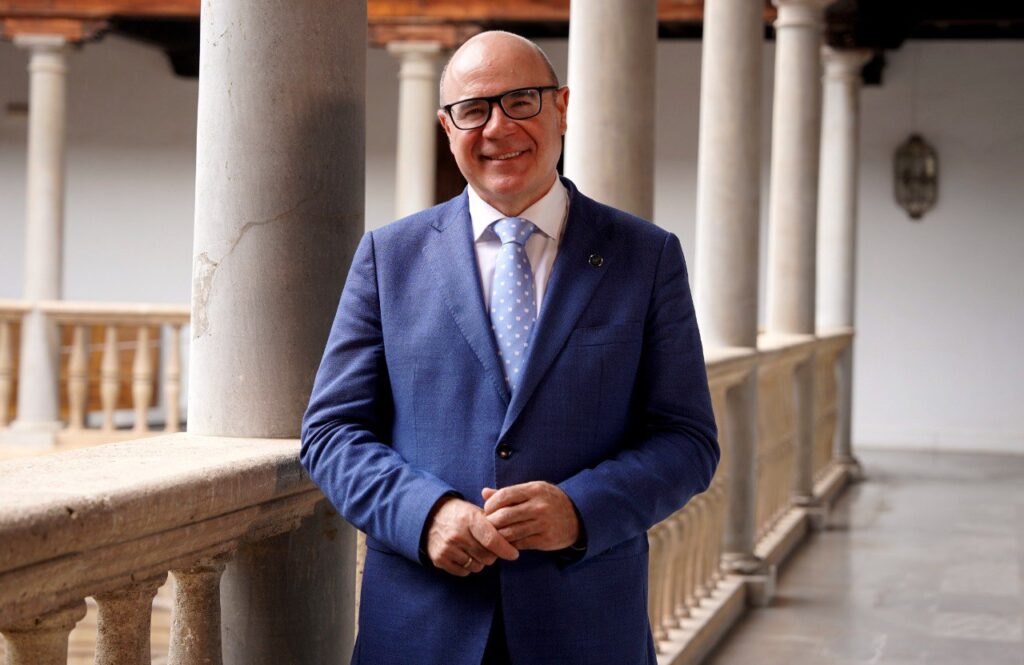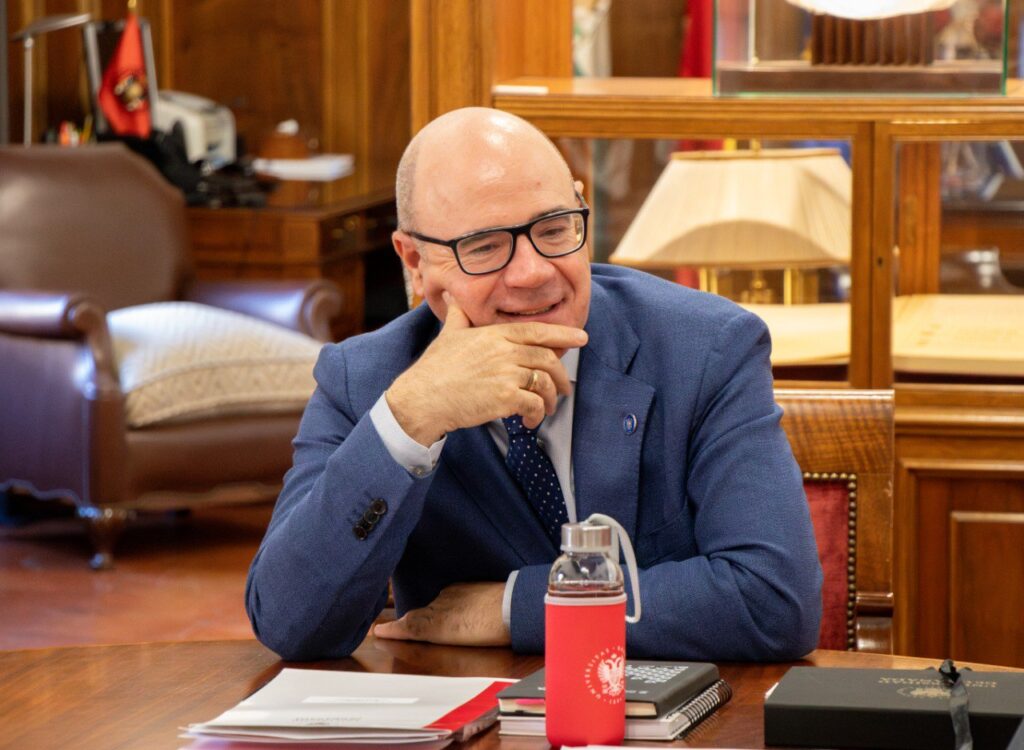“In every forum I attend I try to mention the importance of IFMIF-DONES”
Posted on |

QUESTION (Q). First, we would like to congratulate you on the University of Granada (UGR) position in the Shanghai Ranking: second Spanish university and among the 300 best in the world—an incredible achievement, doubtlessly, but also a responsibility.
ANSWER (A). Thank you very much. Indeed, it is a pride and, at the same time, a responsibility that I sincerely believe we are responding to. In the eyes of the world, the UGR is an excellent university because it is proven in that ranking. But it is also great because our environment, those closest to us, perceives it. And I’m talking about the university community and society as a whole. The activity of the UGR has a significant impact on our economic and social fabric. We are the Spanish university with the most significant impact in our province because we generate 8% of Grenada’s GDP. So yes, being well positioned in the Shanghai ranking is a responsibility to the world that does not make us forget our commitment to those closest to us.
Q. This is a different start to the academic year for you. You are facing it as the new rector of the University of Granada. What are your expectations?
A. Every new academic year is full of expectations, challenges and challenges in a position such as Rector of the UGR, but above all of the responsibilities. First of all, from a general perspective, it is vital to live up to the needs and hopes of the university community. Every September, for example, the university renews its commitment to the student body. It is a great responsibility, as is ensuring the good work of our teaching and research staff and the technical, management, administration and services personnel. Secondly, in a more specific area, we face the major challenge of implementing the process of adapting to the regulatory changes that the new University System law requires of us. In particular, the statutory reform, for which the countdown is already underway. During this academic year, we will have to redefine the university model from the margins of our autonomy and the renewal of our commitment as a public university with new functions, competencies and structures.
In this course, we will also address the objective of advancing the design of a new map of degrees in coordination with the Regional Ministry of Universities, Research and Innovation and with the rest of Andalusian universities.
Q. Your inaugural speech highlighted the need to “invent the future” with transformative projects such as IFMIF-DONES. How will the link between the academic institution and the particle accelerator grow?
A. IFMIF-DONES is a priority for the University of Granada, a strategic matter. That is the first thing I have to say about this magnificent project. I would also like to reiterate the firm commitment of the University of Granada to put scientific leadership at the service of society and to promote, in coordination with other institutions, projects that transform our economic and social environment on a global scale, the most remarkable example of which at the moment is the particle accelerator. However, we also have an essential ecosystem around artificial intelligence and our commitment to research into sustainability, which we will place in such a unique space as the San Isidro Sugar Factory.

Q. The new UGR-DONES Research Centre under construction at CITAI (Escúzar) is progressing rapidly; what are your plans for its opening at the end of this year?
A. The UGR-DONES Research Centre, which we are currently building at the University of Granada, will be completed by the end of 2023. This centre will provide the University and the IFMIF-DONES Spain Consortium with a scientific reference centre to continue working together on valuable activities for the IFMIF-DONES project. To begin to take steps, we plan that several crucial prototypes for the particle accelerator, which we are currently finishing manufacturing, will be moved to this research centre, and once there, we can begin the scientific exploitation campaigns of the same, thanks to which we will be able to obtain essential information for the proper progress of IFMIF-DONES. I must also highlight that IFMIF-DONES is one of the transforming projects we have included in the UGR 2031 Strategic Plan. This research centre of the UGR in Escúzar is, thus, part of and an example of the firm commitment of the UGR to the promotion of IFMIF-DONES, helping and contributing firmly to the development of both the project and the region in which it is located. I can say that by 2024, the UGR will already be present in the municipality of Escúzar.
Q. The global dimension of IFMIF-DONES does not make us forget this project’s driving role in Granada and Andalusia. Does the scientific community of the UGR allow us to face both challenges thanks to its international positioning and implantation in the city?
A. The University of Granada, and we could refer again to the Shanghai ranking, has a first-class scientific community. Fortunately, for years, we have participated in and led relevant international projects. Scientists from all over the world visit us, and our researchers collaborate with laboratories in many countries. The University of Granada has been a full-fledged member of the, we can call it, most relevant network of researchers in the world in various research fields for a long time.
Q. Is IFMIF-DONES the best banner for the increasingly established scientific Grenada?
A. IFMIF-DONES is one of our best flags, without a doubt.. The UGR has been committed to it for years, and we have convinced all the institutions and, of course, the many researchers who can develop an extraordinary professional and research careers in its facilities. The IFMIF DONES is strategic not only for the UGR but also for Andalusia and Spain.
Q. The institutional unanimity in support of IFMIF-DONES must continue to be demonstrated. Are you proud to be an ambassador for this project?
A. Indeed, I do. I must admit that in all the forums I attend, I make sure to mention the project, our involvement, and the importance it holds for us now and, by the way, for the whole world in the future when we can discover a new clean and inexhaustible form of energy.